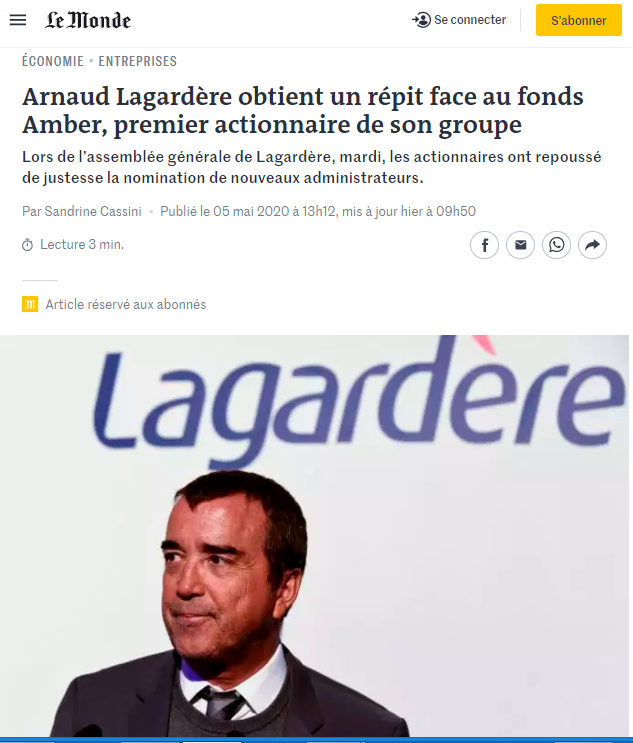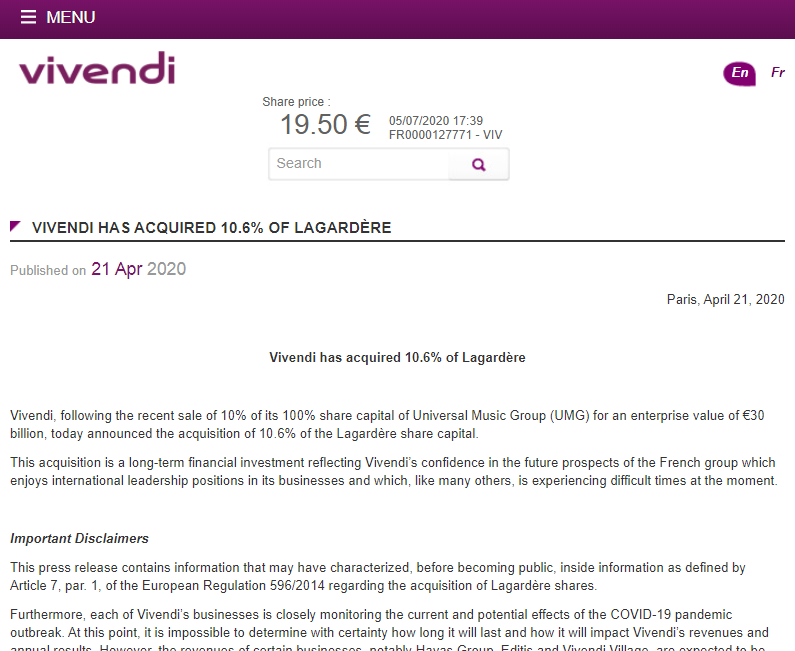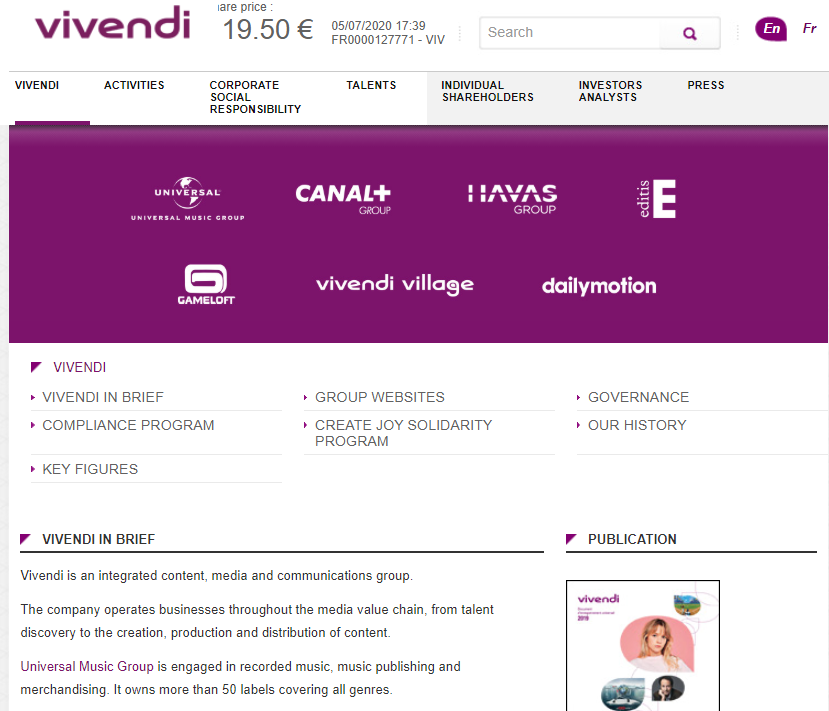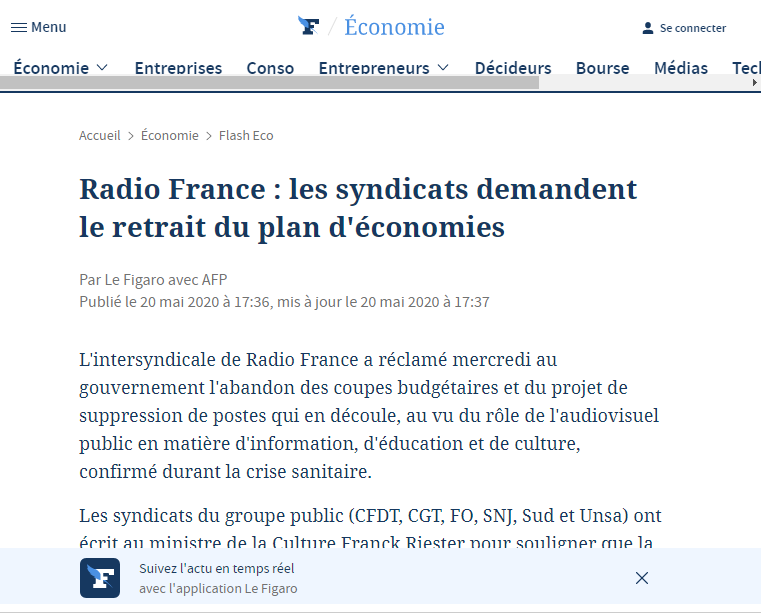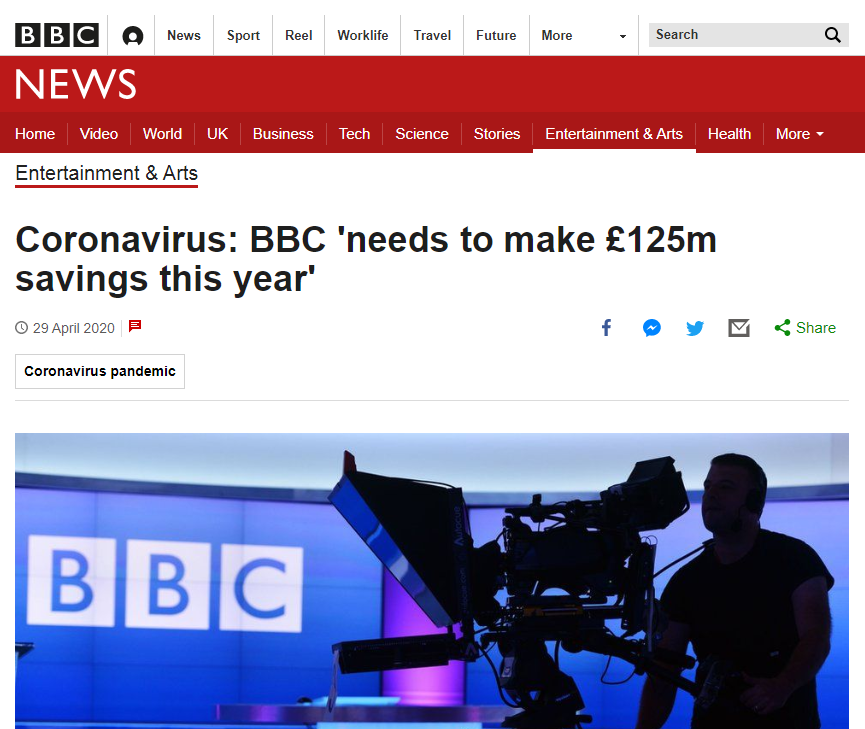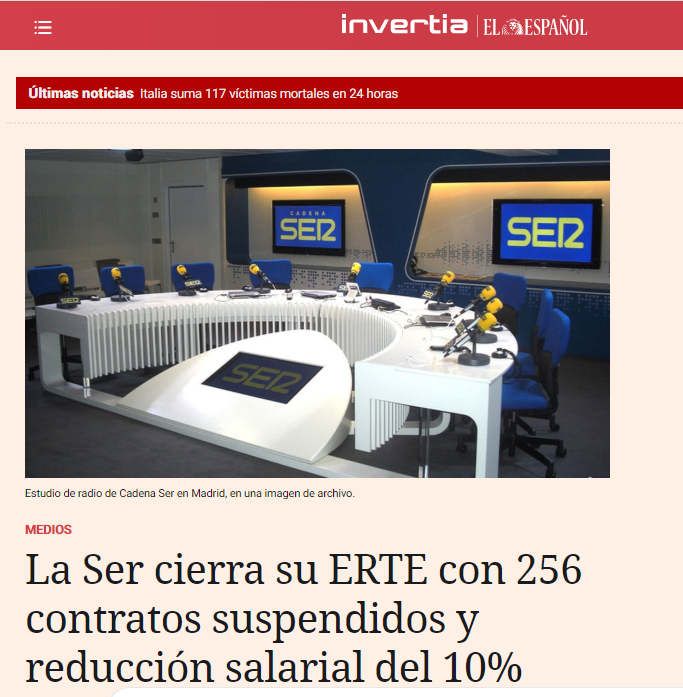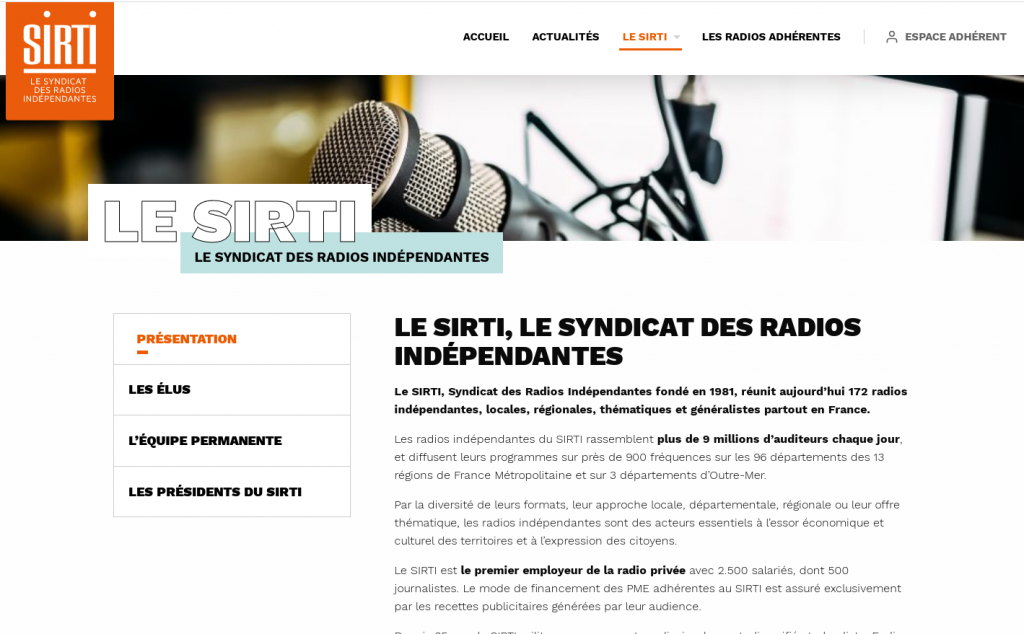
Source
Radio stations in France have also been hit hard by the impact of Covid-19 according to SIRTI, the union of independent radio stations, that has been monitoring the situation by carrying out monthly surveys. Up to April 2020 75% of the radio stations had not applied for the advantages of the ‘partial employment’ scheme (teleworking is not viable for 50% of the staff) because of the bureaucratic procedures being too complicated according to 39% of the respondents. No one had been dismissed (the 112 members in the survey answered) but if the crisis was to last longer, 55% planned to apply for aid from the solidarity fund that has been set up for businesses. More than half of the respondents did not have the resources to face further financial difficulty. After recording a drop of 56% in advertising in March (-32% for the national radio stations) a collapse was foreseen in April: -78% (-75% for national broadcasters).
The situation worsens
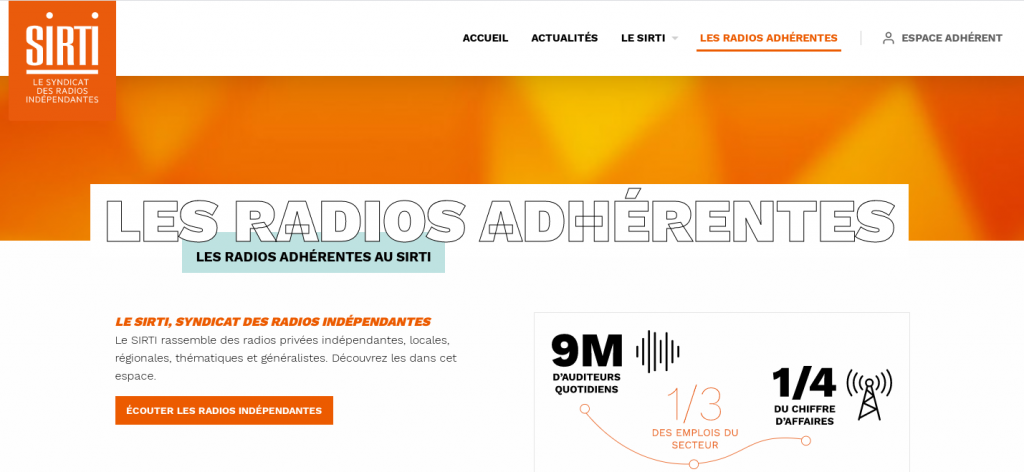
Source
In the second survey carried out in May 2020, 72% were not confident of resuming normal business quickly, and 38% believed that the crisis could jeopardise businesses in the short term. A return to normality, according to 95% of the respondents, would not happen before the beginning of the academic year, and for 21% not before the beginning of 2021. The reason for this was because advertisers, having been hit hard during the crisis, either cancelled their advertising campaigns or negotiated lower prices. More than one out of two radio stations have had to apply for bank loans and one in three has applied for aid from the solidarity funds or other means of support.
Cutting personnel is inevitable
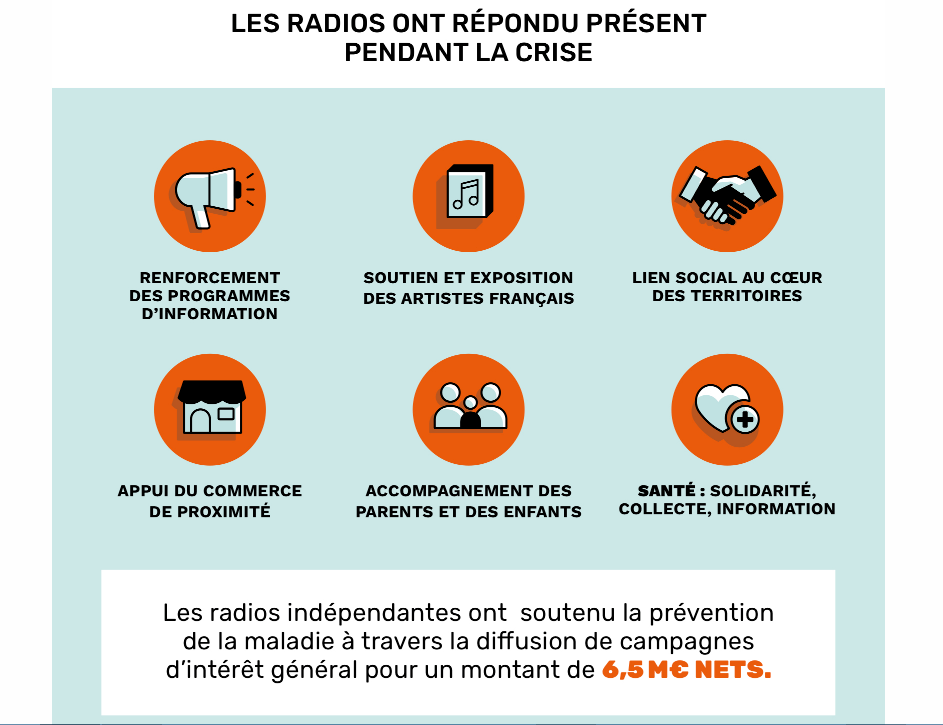
Source
In order to curb the number of dismissals, radio stations are considering implementing the partial employment scheme to balance their books and 32% predict extending this policy to the end of August 2020. 36% have not renewed or have terminated fixed-term contracts and have terminated employment for those employees working probationary periods. However these measures are not sufficient and if financial aid is not available by the end of the year, each radio station will most probably have to cut between one to three jobs. Due to the crisis there will be a reduction in events and concerts. 41% of radio stations predict reducing the number of events they organise at local levels.
Requests to the government
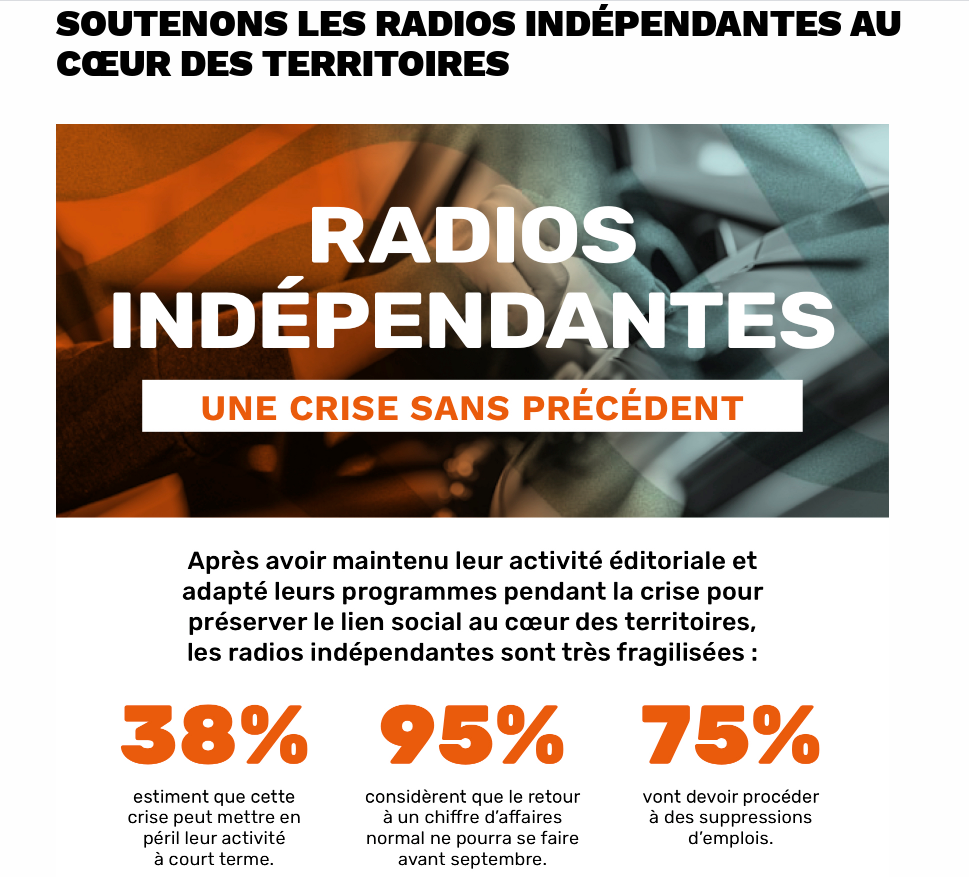
Source
In June 2020 SIRTI estimated that three out of four radio stations will have to cut jobs in the next few weeks. Annual revenues from advertising could be down by at least 25% (€35 million) according to a more optimistic prognosis but could drop by €45 million if investments in advertising does not restart at the beginning of the academic year. The union is asking for a waiver of the last three months payment of both the employee’s and employer’s social security contributions. This is believed to amount to €10 million which could compensate for about a third of lost revenues.

